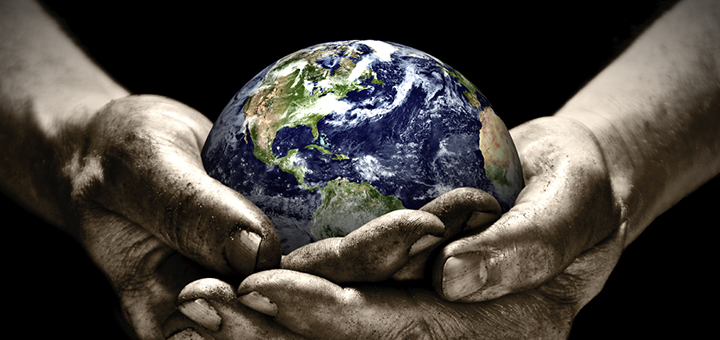The term “globalism” represents a very complicated, social and economic ideology you may have heard used by some conservative politicians. Some of them point to globalism as a system that encourages immigration, which they claim undermines our cultural identity and security*.
In addition, many Christians are aware of biblical prophecies that describe a worldwide enforcement of worship in the last days, making it easier for them to accept political views that disparage globalism, equating it with a one-world religious system. See Revelation 13.
But Christians should strive to see globalism, or globalization, from God’s perspective. Are there positive aspects of this effort to globalize we may have overlooked?
We teach our children to sing “Jesus loves the little children, all the children of the WORLD…”. Although this song reminds us that skin colors don’t matter to God, they seem to matter to many of us–yes, even Christians.
We may be turning God’s blessing into a curse when we oppose diversity rather than welcome and encourage it. What better way for God to teach us to love each other than to put us together in the same communities. And yet, social disparities are seen everywhere. Our ability to love everyone equally falls pitifully short of God’s desire to encourage that kind of love.
There is another children’s song we might need to revise. “He’s got the whole WORLD in His hands…” might have to become “He’s got the whole ‘United States’ in His hands” (or whatever country you live in).
We naturally focus on our own country’s problems and successes much of the time. But unfortunately, nationalism, an extreme form of patriotism, is now the dominant political structure in many countries of the world. Sadly, the Jewish nation also had fallen victim to nationalism at the time Jesus lived and ministered in and around Palestine.
This nationalistic trend often leads to isolationism, as we attempt to separate ourselves from the rest of the world. In turn, our self-seeking, inward focus makes us more likely to neglect our brothers and sisters across the globe, or even across the street.
God’s plan to unite us today may also be through agencies such as the United Nations. But many international attempts at unity have been denounced or dismissed in recent years. We came out of two world wars in the last century largely through efforts to come together as nations and work for and with each other.
Although no human government or organization is perfect in preventing wars or solving global issues, surely God can still work through peace-loving world leaders to prevent major conflicts and tragedies from engulfing us again.
Jesus prophesied that “nation shall rise up against nation” and that there will be “wars and rumors of wars” (Matthew 24:6, 7). This may soon be fulfilled, if we don’t encourage a feature of globalism as the blessing it can be: nations joining hands to preserve peace.
Jesus commissioned His disciples (which includes us) to preach the gospel to ALL nations (Matthew 28:19, 20). Technological advances, medical discoveries, and improved travel have made global missionary outreach possible in our time, just as many innovations of the Roman Empire enabled the early church to be established in much of the world in the first century. We should trust and welcome these human tools and do all we can to use them fairly and safely.
We can certainly use modern innovations to address many issues that currently impact the world. A worldwide, health crisis is threatening many aspects of our lives. This coronavirus pandemic may be one of the end-of-time “pestilences” spoken of by Jesus in Matthew 24:7.
That same verse also warns of famines and natural disasters becoming more intense and frequent. These events, including the pandemic, surely originated and are aggravated by our careless, unhealthy choices and shortsighted, greedy management of natural resources.
How we respond to these life-threatening situations has potential to significantly impact the final outcome of our planet. Will we withdraw from each other through mistrust and fear, refusing to use the blessings globalism can offer; or will we embrace the benefits of united, peaceful global interaction and perhaps extend the time we are given to spread the gospel?
God doesn’t need more time to accomplish His purposes. But He does need us, His people, to come together as one and think more globally. If we want to reflect God, we must work as He does—for ALL of us, for “ALL the children of the WORLD.”
It may require us to recognize and use the many blessings of a global approach to living together on this planet. Will we expend all our time and energy focusing on what Satan has done or might do…or on God’s agenda to offer salvation to the whole world?
*https://www.introtoglobalstudies.com/2018/07/globalization-and-globalism/
Our Sabbath School lesson study of Hebrews this week had more on
Jesus as our faithful Brother…
https://outlookmag.org/the-teachers-notes-jesus-our-faithful-brother-lesson-4/










